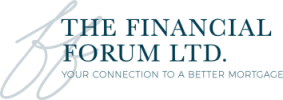One of the most important decisions when obtaining a mortgage is whether you should go with a fixed rate or a variable rate. Each individual situation is different and both have their pros and cons. Which one suits you better? First, it is essential that you know the differences and then, perhaps you can better decide which option suits you best.
Fixed Rate
A fixed interest rate mortgage is a mortgage where your rate is constant for the entire term of your loan. The fixed rate period can range from 6 months to 10 years, depending on the lenders offerings and the term that you choose. With a fixed rate mortgage, you mitigate the risk of rising interest rates and higher payments. Fixed rates can be higher than variable rate mortgages, especially for longer term mortgages (i.e. – 3 to 10 years). So, you are more or less insuring yourself against potential rate increases. However, if rates should fall, it will also mean you have missed out on potential savings.
With a fixed rate mortgage, it becomes easy to budget and manage your home related costs for the term chosen as you know precisely what your payments will be for the duration of the term. However, as you are locking yourself in to a lender for a specified period, there may be penalties if you wish to pay off or refinance the mortgage prior to the expiry date.
Variable Rate
With a Variable Rate Mortgage, the interest rate can change at any time along with any changes in the Prime Lending Rate in Canada. As a general rule, if the prime lending rate in Canada drops, so will your interest rate. If it rises, well, unfortunately, so will yours. This makes it more difficult to budget as interest rates can be unpredictable. The repayment terms are generally more flexible than with a fixed rate mortgage. In addition, most lenders will allow you to “lock-in” to a fixed rate mortgage at the then prevailing fixed rates if you feel rates are on the rise. With a variable rate mortgage, it is important to plan ahead for any rate increases and it is also wise to set your payments at the fixed rate level or slightly above to provide you with a “buffer” against increases.
Blended Rate
Some lenders allow you to have a part of your mortgage on a fixed rate and the remainder on a variable rate. This provides some hedging so that regardless where rates go, you are somewhat suited to the circumstance. Most are not fond of this approach as no matter which direction the rates travel, you will not experience the full benefits of either.
Which Mortgage Should You Choose?
Every individual is different and we can only provide guidelines to help you decide what is best for you. If you feel that the prime lending rate will be higher than the current rate offered for a fixed rate mortgage for a majority of your term, then go with a fixed rate loan. In other words, the prime rate may be lower today, but you expect it to increase and surpass the rate offered for a fixed rate mortgage within the expiry date of the term, you should consider a fixed rate mortgage.
Alternatively, if you predict the prime lending rate will be lower for the majority of your term, then you should obviously choose a variable rate loan.
Interest rates cannot be controlled and/or accurately predicted, by anyone. They are not only affected by events in Canada but also globally. There will always be risk attached for either a fixed rate mortgage or a variable rate mortgage. The decisive factor should be which option is best suited to your specific needs. Keep your financial goals in mind, and take into account your income stream and the need for security or flexibility.
Have any questions, need any advice? Visit us at www.thefinancialforum.ca. Email us at mortgages@thefinancialforum.ca. Call us at (905) 265-0246.
VERICO The Financial Forum Ltd.
“Your Connection To A Better Mortgage”
Together, We Make Mortgages Easy!





